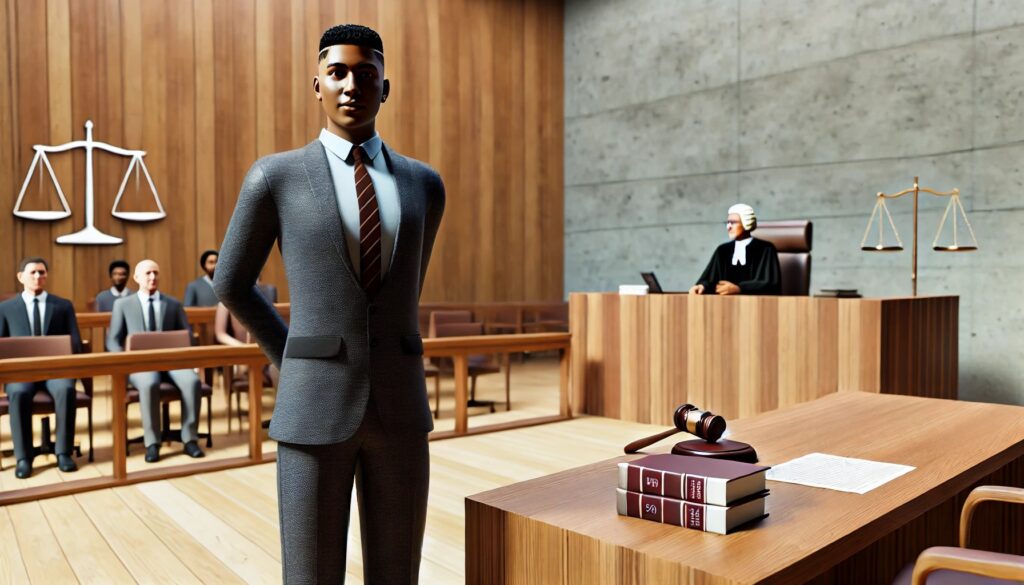Last month, the American Bar Association’s Legal Tech Resource Center listed me as one of the top women of legal tech for 2024. The ABA last year named me a Legal Rebel. I’m invited to hobnob with VIPs in the legal profession through service on influential boards, and I’m frequently quoted in the legal press on issues related to access to justice.
I’m not just fishing for compliments here. What’s remarkable is that I’m not a lawyer. Everything I know about the law was learned the hard way — by representing myself in court.
My journey as a pro se litigant began out of necessity. Faced with a legal battle I couldn’t afford to lose, yet equally unable to afford a lawyer, I found myself navigating the complex and often intimidating world of civil litigation on my own. Alongside Debra Slone, who shared similar struggles, I co-founded Courtroom5, a platform dedicated to empowering people like me who must represent themselves in court. Our shared experiences and challenges as pro se litigants inspired us to create a system that helps others confidently engage in their legal battles without needing an attorney. This journey not only highlighted the glaring gap in accessible legal support but also sparked a deeper conversation about the very nature of the practice of law.
The Unlicensed Practice of Law: A Gray Area
One of the most significant challenges we faced was the concern about the unlicensed practice of law (UPL), not for pro se litigants themselves, but for organizations like ours that serve them. The fear of crossing this often vague boundary was a persistent source of anxiety. Interestingly, despite the seriousness of UPL accusations, the practice of law itself is rarely, if ever, clearly defined. This ambiguity creates a gray area where many organizations operate, always wary of overstepping invisible lines.
In California, the practice of law is generally understood to involve the provision of legal advice and representation in court, while Florida’s definition includes the preparation of legal documents and the handling of legal matters. However, these definitions are not exhaustive and leave much to interpretation, contributing to the uncertainty that surrounds UPL. For instance, in California, Business and Professions Code Section 6125 states, “No person shall practice law in California unless the person is an active licensee of the State Bar.” Florida’s definition is similarly broad, encompassing activities like advising clients, drafting legal documents, and representing clients in court, but does not provide clear boundaries for what constitutes legal advice versus legal information.
The primary concern for Courtroom5 and similar organizations is that providing certain services to pro se litigants might be construed as practicing law. Only law firms are legally permitted to practice law on behalf of others, and Courtroom5 is not a law firm. This restriction means we must carefully design our services to empower individuals without crossing into areas that might be deemed legal practice. This delicate balance is crucial to ensure that we can continue to support pro se litigants effectively while staying within the legal boundaries.
Defining the Personal Practice of Law
To navigate this complexity, we at Courtroom5 developed a definition of the practice of law that distinguishes between activities that require a license and those that do not. We define the practice of law generally as interpreting, applying, and arguing the law. If you have a license, you can be trained to perform these activities for others, but if you don’t, you can only be trained to do them for yourself.
- Interpreting the Law: Understanding the statutes, case law, and legal principles that govern your legal issue.
- Applying the Law: Relating these legal principles to the specific facts and circumstances of your case.
- Arguing the Law: Presenting your legal position effectively in court, through written documents or oral arguments.
This framework allows organizations like Courtroom5 to empower individuals to take charge of their own legal matters while remaining within the boundaries of the law, ensuring we do not inadvertently engage in UPL.
Supporting the Personal Practice of Law at Courtroom5
At Courtroom5, our mission is to support pro se litigants in their personal practice of law through a structured, step-by-step approach. Thanks to advancements in generative AI, these tasks are now easier than ever for the typical layperson to complete:
- Choose Your Move: We provide tools to help users determine the best next step in their case, whether it’s responding to a motion, filing a new claim, or preparing for a hearing. Our conversational AI tools offer personalized legal information, making complex decisions more manageable.
- Learn the Standard: Our platform offers easy-to-follow tutorials that explain the legal standards and requirements relevant to the user’s next move. These tutorials are enhanced with AI-generated content that simplifies complex legal concepts.
- Map the Elements: Users can break down their case and the opponent’s filings into manageable elements, identifying what needs to be proven or disproven. AI helps by analyzing documents and highlighting key facts.
- Find the Law: Access to a comprehensive legal research database helps users find relevant statutes, case law, and legal precedents. AI-powered search tools make it easier to find the most pertinent legal information quickly.
- Craft Your Filing: Step-by-step templates and expert tips guide users in drafting clear and effective legal documents tailored to their case. Generative AI assists in drafting documents, ensuring clarity and compliance with legal standards.
By following this process, pro se litigants can confidently navigate their legal challenges, transforming from feeling lost and overwhelmed to being in control and self-assured.
Reclaiming the Courts for the People
In a democratic society, the ability to understand and engage with the legal system should not be a privilege reserved for those who can afford an attorney. The courts belong to the people, and it’s imperative that everyone has the tools and knowledge to access justice. The Personal Practice of Law is a step towards reclaiming the courts for the people, ensuring that justice is not only accessible but also equitable.
Courtroom5 is more than just a platform; it’s a movement towards democratizing legal knowledge and empowering individuals to stand up for their rights. By developing the Personal Practice of Law, we aim to bridge the gap between professional legal representation and self-representation, making it possible for everyone to navigate the legal system effectively.
The impact of this movement can be profound. When individuals are equipped with the knowledge and tools to represent ourselves, we become more engaged and informed citizens. This increased engagement can lead to a more transparent and accountable legal system, one that truly serves the needs of the public.
An Appeal for Collective Empowerment
Our journey has taught us that with the right tools and support, anyone can become proficient in the practice of law for their own case. We believe that this empowerment is crucial for a truly democratic society. As more people develop their personal practice of law, we collectively push for a legal system that serves the people, not just those with the resources to hire lawyers.
We call on everyone to embrace this practice. Whether you’re currently facing a legal battle or simply want to be prepared for the future, developing your personal practice of law is a powerful step towards reclaiming your rights and ensuring justice for all. Join us in this movement to make the courts accessible, fair, and truly democratic.
At Courtroom5, we are committed to supporting you every step of the way. Together, we can create a future where the practice of law is not confined to professionals but is a skill accessible to every person seeking justice in court. Let’s reclaim our courts and ensure justice for all.




Great insights on empowering pro se litigants! Taking control of your legal journey can be challenging, but with the right knowledge and resources, justice becomes more accessible.